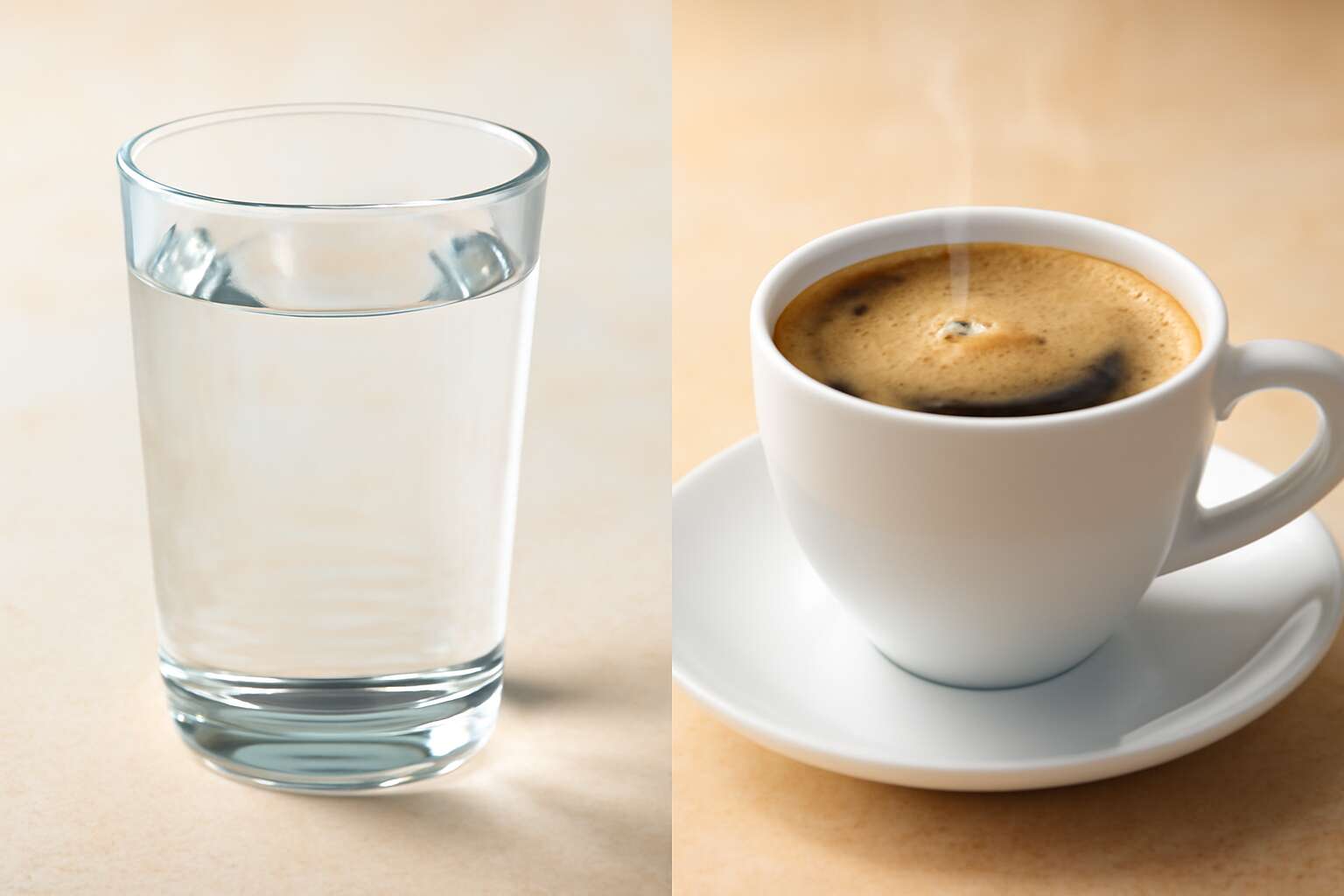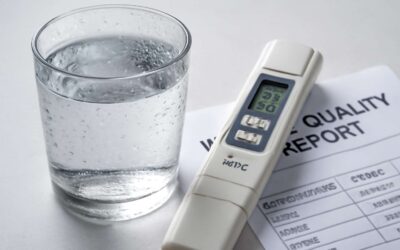Health Benefits of Drinking Water
Hydration and Body Function – How water supports vital bodily processes
Water isn’t just a basic necessity; it’s the silent architect of our physiology, orchestrating vital processes that sustain life. When considering drinking water vs coffee, many overlook the profound impact water has on overall health. Proper hydration fuels cellular functions, ensuring nutrients are transported efficiently and waste is expelled from the body. Without adequate water intake, the body’s ability to regulate temperature and maintain joint lubrication diminishes, leading to discomfort and decreased performance.
Furthermore, drinking water supports cognitive clarity and emotional stability—elements often underestimated in the debate of drinking water vs coffee. Unlike caffeine’s temporary stimulant effect, water nurtures the body’s natural equilibrium, fostering a sense of well-being that persists throughout the day. To grasp its significance, one might consider the following benefits:
- Enhancement of nutrient absorption
- Maintenance of electrolyte balance
- Promotion of healthy digestion
In the ongoing discussion of drinking water vs coffee, water’s role as the foundation of bodily function remains unmatched, quietly underpinning our vitality with every sip.
Detoxification and Kidney Health – Role of water in flushing out toxins
In the intricate dance of maintaining optimal health, the role of water in flushing out toxins often goes unnoticed. While many focus on what they consume, few realize that drinking water vs coffee can significantly influence detoxification and kidney health. Water acts as a silent cleanser, helping the body eliminate waste products through urine and sweat. This process is vital for preventing the build-up of harmful substances that can impair kidney function.
Unlike coffee, which may have a diuretic effect, drinking water supports the kidneys’ natural filtration system without dehydrating the body. Proper hydration ensures that toxins are efficiently expelled, reducing the risk of kidney stones and urinary tract infections. It’s this delicate balance that underscores the importance of choosing water—an unassuming, yet powerful ally—over stimulants like coffee in the quest for detoxification and long-term kidney health.
Weight Management and Calorie-Free Hydration – Why water is ideal for weight control
In the shadowy corridors of health, where every choice echoes in the silent chambers of the body, water emerges as an unassuming guardian—steadfast and unwavering. Unlike the fleeting energy burst from coffee, drinking water vs coffee reveals a stark truth: water is the purest ally in maintaining weight management. It contains zero calories, yet it fills the void, curbing hunger and preventing unnecessary snacking that often leads to weight gain.
For those seeking a natural, calorie-free hydration source, water is an unrivaled option. It effortlessly sustresses the body’s metabolic processes and supports the delicate balance needed for long-term weight control. Intriguingly, many overlook how simple hydration can be a powerful tool in shaping a healthier, leaner self. In the quiet, relentless pursuit of wellness, choosing water over coffee becomes an act of subtle rebellion—an assertion that true strength lies in purity and consistency.
Health Benefits of Drinking Coffee
Enhanced Mental Alertness and Focus – Caffeine’s impact on cognition
Within the tapestry of our daily routines, few beverages stir the mind as potently as coffee. Its allure lies not only in its rich aroma but also in its remarkable ability to sharpen mental acuity. When comparing drinking water vs coffee, it’s clear that the latter possesses a unique magic—an awakening of the senses that transforms sluggish mornings into moments of clarity. Caffeine, the star component of coffee, acts as a natural stimulant, binding to adenosine receptors in the brain, thus reducing fatigue and fostering heightened focus.
Enhanced mental alertness from coffee isn’t just a fleeting sensation; it’s a catalyst for creative thinking and problem-solving. For those seeking a mental edge, a well-timed cup can boost concentration and improve cognitive performance. In fact, many professionals rely on coffee to maintain productivity during demanding tasks. As you weigh the benefits of drinking water vs coffee, remember that while water keeps our bodies balanced and hydrated, coffee ignites the mind, turning mundane moments into opportunities for inspired action.
Rich Source of Antioxidants – Health benefits from coffee’s antioxidants
Among the many virtues attributed to coffee, its richness in antioxidants stands out as a testament to its healthful qualities. While water may be the cornerstone of hydration, coffee offers a compelling complement—delivering a potent dose of natural compounds that may bolster our overall well-being. These antioxidants combat oxidative stress, which is linked to aging and chronic illnesses, providing a shield of cellular defense.
Scientific studies have shown that coffee contains a variety of antioxidants such as chlorogenic acids and polyphenols. These bioactive molecules support cardiovascular health, reduce inflammation, and may even lower the risk of certain diseases. When weighing the benefits of drinking water vs coffee, it’s evident that coffee’s antioxidant properties give it an edge in promoting long-term health. For those who enjoy a morning ritual, the antioxidant boost may turn a simple cup into a healthful experience—one that energizes both mind and body.
Potential Disease Prevention – Research on coffee and reduced risks of certain diseases
Research indicates that coffee consumption is linked to a reduced risk of several chronic diseases, making it more than just a morning pick-me-up. Studies have shown that regular coffee drinkers may experience a lower incidence of conditions such as type 2 diabetes, Parkinson’s disease, and certain types of cancer. This isn’t coincidental—coffee’s bioactive compounds, like chlorogenic acids, play a crucial role in supporting cellular health and reducing inflammation.
Interestingly, some research suggests that moderate coffee intake can bolster cardiovascular health by improving blood vessel function and reducing the risk of stroke. These potential disease-preventing benefits make coffee a fascinating subject in the ongoing debate of drinking water vs coffee. It’s clear that when enjoyed in moderation, coffee offers more than just warmth and aroma; it provides a potent arsenal of health-promoting properties that can contribute to long-term well-being.
Nutritional Content and Composition
Water – Pure hydration with zero calories or additives
In the ongoing debate of drinking water vs coffee, understanding their nutritional content reveals stark differences that influence our daily choices. Water, the quintessential element of pure hydration, contains zero calories, additives, or artificial ingredients. Its composition is straightforward—H₂O in its purest form—making it an unrivaled beverage for maintaining optimal bodily functions without any nutritional baggage.
On the other hand, coffee boasts a complex profile packed with antioxidants and essential nutrients like magnesium and B vitamins, albeit in modest amounts. While it offers a rich source of antioxidants that can fight oxidative stress, its caffeine content also plays a considerable role in mental alertness and focus. Yet, unlike water, coffee’s nutritional composition is not primarily about hydration but about delivering a stimulating experience that can also have health benefits, such as potentially reducing the risk of certain diseases.
- Hydration with water supports every cellular process without added calories or chemicals.
- Coffee provides antioxidants and vital nutrients but comes with caffeine’s stimulating effects.
Coffee – Calories, caffeine content, and potential additives
When weighing the benefits of drinking water vs coffee, understanding their nutritional content reveals compelling differences. Coffee, with its rich aroma and deep flavor, contains calories—typically around 2 to 5 per cup—mainly stemming from added ingredients like sugar or milk. Beyond calories, coffee’s caffeine content varies but generally ranges from 70 to 150 milligrams per cup, providing a potent stimulant that sharpens mental focus and boosts energy levels. This caffeine kick is often the reason many rely on coffee to start their day or power through demanding tasks.
In addition to caffeine, coffee offers a modest but meaningful supply of antioxidants, including chlorogenic acids, which can combat oxidative stress. Some brews also contain trace amounts of essential nutrients such as magnesium, B vitamins, and potassium, adding to their health appeal. For those seeking to indulge in a stimulating beverage, understanding these nuances helps make informed choices—especially when contrasting with drinking water vs coffee, where hydration is the primary focus, but nutritional benefits vary significantly.
Impact on Energy and Mental State
Boosting Energy Levels – How both water and coffee influence energy
When it comes to boosting energy and sharpening mental clarity, the choice between drinking water vs coffee can feel like a pivotal decision. Coffee’s caffeine content acts as a potent stimulant, igniting the brain and elevating focus within minutes. For many, that initial sip sparks a surge of alertness, transforming sluggish mornings into moments of productivity. However, this rapid lift is often short-lived, leaving some craving another dose or facing a crash later.
On the other hand, drinking water offers a subtler, yet equally vital, influence on mental state. Proper hydration supports sustained cognitive function and prevents the fatigue that dehydration can cause. While water doesn’t deliver the immediate jolt that coffee provides, it maintains a steady energy baseline, preserving mental clarity throughout the day. For those seeking a balanced approach, understanding the nuanced impact of drinking water vs coffee becomes essential in optimizing daily performance.
Impact on Mood and Mental Clarity – Comparing effects of hydration vs caffeine
When it comes to impact on mood and mental clarity, drinking water vs coffee presents a stark contrast. Coffee’s caffeine acts as a quick fix—sharpening focus and boosting alertness fast. That initial jolt can turn a sluggish morning into a burst of productivity. However, this boost can be fleeting, often followed by a crash that leaves you feeling more drained than before.
In contrast, drinking water supports mental clarity in a more subtle, sustained manner. Proper hydration prevents the sluggishness caused by dehydration, helping you maintain a steady, calm focus throughout the day. Unlike coffee, water doesn’t cause spikes and dips but instead nurtures your brain’s overall function. For those seeking consistent mental performance, understanding the differences between drinking water vs coffee is key to optimizing your daily mental state.
Potential Risks and Drawbacks
Risks of Excessive Water Intake – Hyponatremia and other concerns
While both drinking water vs coffee serve vital roles in our daily routines, consuming excessive amounts of either can pose health risks. Overhydration, although rare, can lead to hyponatremia—a dangerous condition where sodium levels in the blood become dangerously diluted. Symptoms include confusion, nausea, and even seizures. It’s a stark reminder that moderation remains key, even with something as seemingly benign as water.
On the flip side, overindulgence in coffee can lead to increased heart rate, anxiety, and disrupted sleep patterns. The caffeine in coffee acts as a stimulant, but too much can overstimulate the nervous system, resulting in jitteriness or dehydration—ironically, because caffeine is a diuretic. For those navigating the balance of hydration and energy, understanding the potential drawbacks of drinking water vs coffee becomes crucial to maintaining overall well-being.
- Electrolyte imbalance
- Kidney strain from excessive water intake
- Increased risk of dehydration from too much caffeine
Risks of Overconsuming Coffee – Caffeine dependency, sleep disturbances, and dehydration
In the shadowed corridors of daily sustenance, the debate of drinking water vs coffee takes on an almost ritualistic gravity. While coffee’s allure promises a fleeting surge of vitality, overindulgence can cast dark shadows over health. Caffeine dependency, for instance, tightens its grip, subtly rewiring the nervous system until even a single missed cup ignites anxiety and fatigue. Sleep disturbances follow close behind, as caffeine’s wakefulness persists long after the last drop, disrupting the natural cycle of rest.
Moreover, excessive coffee consumption can paradoxically lead to dehydration. The very stimulant that energizes can also drain the body’s moisture, turning a seemingly harmless brew into a double-edged sword. For those who chase their vitality through this dark elixir, understanding the potential risks of overconsuming coffee becomes essential. The line between invigorating and destructive is thin—one that demands respect and circumspection in the eternal dance of drinking water vs coffee.
Hydration and Daily Fluid Intake
Recommended Water Intake – Guidelines for proper hydration
Staying adequately hydrated is essential for maintaining overall health, yet many people overlook the importance of proper fluid intake. The daily recommended water intake varies based on factors like climate and activity level, but generally, adults should aim for about 2 to 3 liters of drinking water vs coffee each day. Water remains the purest form of hydration, providing zero calories or additives, making it the ideal choice for maintaining bodily functions without unnecessary calories.
While drinking water vs coffee serves different purposes, understanding the guidelines can help optimize daily hydration. For instance, drinking water helps prevent dehydration, supports digestion, and sustains energy levels throughout the day. Incorporating a routine of regular water consumption can significantly benefit mental clarity and physical performance, especially in South Africa’s often hot climate. Remember, over-consuming water can lead to hyponatremia, so moderation is key. Meanwhile, coffee offers a caffeine boost but should be consumed judiciously to avoid sleep disturbances and dependency.
Role of Coffee in Hydration – Does coffee count towards daily fluid goals?
In the bustling landscape of South Africa, where temperatures can soar and hydration becomes a daily necessity, understanding the role of drinking water vs coffee is more crucial than ever. While many reach for their favorite brew to kickstart the morning, the question remains: does coffee count towards your daily fluid goals? The quick answer is yes, but with nuances that merit attention. Coffee, thanks to its caffeine content, was once thought to be dehydrating, but current research suggests it contributes to your hydration, albeit modestly.
However, it’s important to recognize that drinking water remains the gold standard for hydration—pure, calorie-free, and essential for bodily functions. Coffee, with its stimulating effects and rich antioxidants, can complement your fluid intake but shouldn’t be relied upon solely. It’s a delicate balancing act, especially when considering the potential for overconsumption. For those in South Africa’s climate, where dehydration risks loom large, ensuring a proper intake of drinking water vs coffee can make all the difference in maintaining energy, mental clarity, and overall health.
Special Considerations
For Athletes and Active Individuals – Hydration strategies including water and coffee
For athletes and active individuals, hydration strategies are critical to maintaining peak performance and recovery. When comparing drinking water vs coffee, it’s essential to recognize how each influences hydration levels. Water remains the cornerstone of effective hydration, supporting muscle function, preventing cramps, and replenishing fluids lost during intense activity. However, coffee’s reputation as a diuretic often sparks debate; recent research suggests that moderate coffee consumption can contribute to daily fluid intake without risking dehydration.
Understanding the nuances of drinking water vs coffee involves considering their roles in energy and alertness. Coffee’s caffeine boost can enhance focus and mental clarity, vital during prolonged physical exertion or competitive events. Still, overreliance on coffee might lead to dehydration or sleep disturbances, hampering recovery. For active individuals, balancing these beverages is key. Some prefer an ordered approach, such as:
- Prioritizing water intake before and after exercise
- Using coffee strategically for a mental boost, not as the primary hydration source
- Monitoring caffeine intake to avoid adverse effects
For People with Medical Conditions – Caffeine sensitivity and hydration needs
For those with medical conditions, the choice between drinking water vs coffee demands careful consideration. Caffeine sensitivity can transform a seemingly harmless cup into a catalyst for discomfort, triggering tremors, anxiety, or sleep disturbances. Individuals with heart conditions or hypertension must stay vigilant; caffeine’s stimulant properties might exacerbate underlying issues, making moderation essential. Hydration needs also shift for these groups, as dehydration risks are heightened when caffeine acts as a diuretic in sensitive individuals.
Understanding these nuances involves recognizing that drinking water remains the most reliable source of hydration, especially when health is compromised. For some, a simple
- monitoring caffeine intake
- prioritizing water consumption
can make all the difference. Striking a delicate balance ensures the body’s vital functions stay in harmony, without tipping the scales toward adverse effects from overindulgence in coffee.
Environmental and Lifestyle Factors
Sustainable Consumption – Eco-friendly water sources and coffee production
In South Africa, the debate between drinking water vs coffee often hinges on both environmental impact and lifestyle choices. As global awareness of sustainability grows, the importance of eco-friendly water sources becomes more apparent. Many communities now prioritize rainwater harvesting and water recycling to reduce reliance on strained freshwater systems, highlighting how sustainable consumption can make a tangible difference.
Similarly, coffee production has come under scrutiny for its environmental footprint. From water-intensive cultivation methods to the carbon emissions associated with processing, the journey from bean to cup reveals a complex web of ecological considerations. Fortunately, some coffee brands are now adopting eco-friendly practices, such as shade-grown coffee and biodegradable packaging, fostering a more sustainable consumption model.
- Supporting fair trade coffee farmers
- Reducing water waste during processing
- Emphasizing organic and biodegradable packaging
These efforts contribute to a more responsible approach to enjoying our favorite beverages, whether it’s the pure hydration of drinking water vs coffee’s rich aroma. Incorporating eco-conscious choices in daily routines not only benefits the environment but also promotes a lifestyle aligned with sustainability, a crucial consideration in today’s resource-conscious world.
Cultural and Social Impacts – Coffee culture vs water in social settings
In South Africa, the social rituals surrounding beverages reveal more than just personal preference—they mirror cultural values and societal priorities. Drinking water vs coffee often sparks debates that go beyond hydration, touching on community identity and lifestyle nuances. While water fosters unity through its universal necessity, coffee creates vibrant social hubs, from bustling cafés in Johannesburg to quiet morning rituals in Cape Town. These gatherings become arenas for conversation, connection, and even subtle power plays.
For many, coffee symbolizes sophistication and innovation, while water remains an understated hero of health. Yet, in social settings, the choice between drinking water vs coffee can indicate underlying priorities—be it sustainability or social bonding. Coffee’s aromatic allure often draws people into collective experiences, whereas water’s pure simplicity sustains those moments with a silent promise of wellness and refreshment. This cultural dichotomy underscores how beverages shape more than our health—they influence our social fabric.
Making the Right Choice
Balancing Water and Coffee Intake – Tips for optimal hydration and alertness
In the vibrant rhythm of everyday life, choosing between drinking water vs coffee becomes an art of balance. While water whispers the promise of pure hydration, coffee teases with a caffeinated jolt that awakens the senses. Striking the right equilibrium ensures you stay energized without sacrificing health. It’s not just about quenching thirst or chasing a buzz; it’s about understanding how each influences your body’s delicate harmony.
For those seeking optimal alertness, incorporating a mindful approach to both is essential. Hydration fuels bodily functions, yet coffee’s rich antioxidants offer a surprising health boost. An effective way to harmonize these elements is to enjoy coffee in moderation, complementing it with ample drinking water. This synergy supports mental clarity and physical vitality—an enchanting dance between two seemingly contrasting beverages. When you grasp the nuances of drinking water vs coffee, your daily routine transforms into a celebration of nourishment and alertness.
Personalization Based on Lifestyle – Tailoring consumption to individual needs
In the shadows of daily ritual, the choice between drinking water vs coffee is not merely a matter of preference but a reflection of one’s lifestyle. For the busy professional wandering through the labyrinth of meetings or the athlete chasing fleeting moments of peak performance, tailoring beverage consumption becomes an act of personal mastery. Each sip, whether it’s the crystalline clarity of water or the dark allure of coffee, whispers a different secret to the body.
Those seeking to harness the power of hydration might prioritize drinking water for its pure, calorie-free essence. Conversely, individuals craving mental clarity and a burst of energy often lean towards coffee, embracing its rich antioxidants and invigorating caffeine. For a harmonized approach, consider integrating both into a daily rhythm—hydrating with water to sustain bodily harmony, while savoring coffee as a catalyst for focus and vitality.
- Identify your activity level—athletes and active souls benefit from strategic hydration complemented by moderate coffee intake.
- Reflect on medical needs—those with caffeine sensitivities or specific health conditions may find water more vital.
- Balance your routine—embrace the ritual of drinking water vs coffee with mindfulness, ensuring neither dominates to the detriment of well-being.
In the quiet moments of introspection, choosing between drinking water vs coffee becomes an act of self-awareness—an unspoken dialogue between your body’s needs and the demands of your day. The true art lies in personalization, crafting a symphony where hydration and caffeine dance in balanced harmony, each supporting the other in the shadows of your life’s labyrinthine corridors.




0 Comments